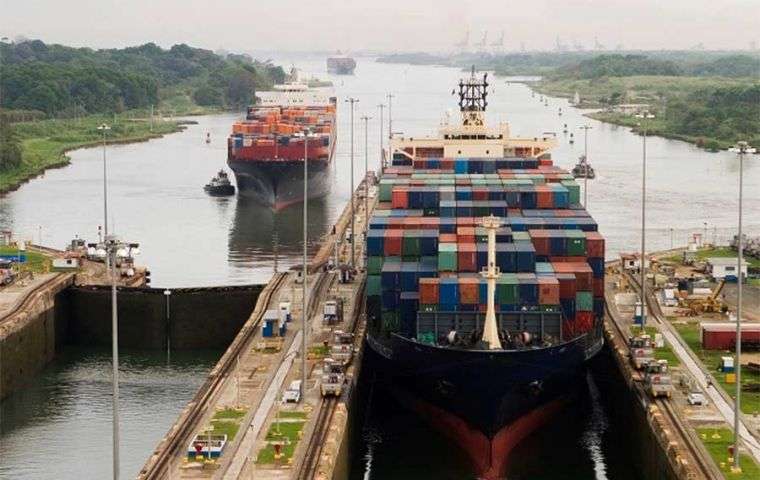Rubio’s Ambiguous Stance on the Panama Canal Treaty
The recent controversy surrounding transit fees for US Navy vessels through the Panama Canal has ignited a diplomatic spat between the United States and Panama, while also highlighting the broader geopolitical dynamics at play in the region. US Senator Marco Rubio’s assertion that the US is obligated to defend the canal and therefore should be exempt from fees has been met with firm denial by Panamanian authorities, who insist no such agreement exists. This disagreement underscores the delicate balance between the historical ties binding the two nations and Panama’s assertion of its sovereignty over the vital waterway. The incident also reveals the underlying tensions between the US and China as they vie for influence in strategically important regions like Latin America.
The core issue revolves around the interpretation of the 1977 Torrijos-Carter Treaties, which transferred control of the Panama Canal to Panama. While the US retains the right to defend the canal’s neutrality, Panama maintains control over its operations, including setting transit fees. Rubio argues that the US Navy’s role in safeguarding the canal justifies its exemption from these fees, effectively linking the two as reciprocal obligations. However, he has not provided evidence demonstrating that US naval vessels transiting the canal have been directly involved in its defense. Panama, in turn, emphasizes its sovereign right to levy fees and denies any agreement waiving them for US government vessels. This discrepancy raises questions about the nature of US naval operations in the region and the extent to which they contribute to the canal’s security. Furthermore, the relatively small number of transits by US Navy ships annually, coupled with the fact that many modern US warships are too large to even utilize the canal, diminishes the financial impact of these fees on the US Navy budget.
The diplomatic fallout from this dispute extends beyond the immediate issue of transit fees. Panama’s recent decision to withdraw from China’s Belt and Road Initiative (BRI) further complicates the situation. While Panamanian President José Raúl Mulino denies any US pressure influenced this decision, the timing, coinciding with Rubio’s visit and his vocal criticism of China’s growing influence, inevitably raises suspicions. This move signals a potential shift in Panama’s foreign policy, prioritizing its relationship with the US amidst growing concerns about China’s strategic ambitions in the region. The US has long viewed the BRI with skepticism, seeing it as a vehicle for Chinese economic and military expansion. Panama’s withdrawal, therefore, aligns with US interests in countering Chinese influence in Latin America.
China’s response to these developments has been predictably sharp, accusing the US of distorting facts and interfering in Panama’s sovereign decisions. This exchange highlights the escalating rivalry between the two superpowers, with the Panama Canal emerging as a symbolic battleground in their broader geopolitical competition. The US sees its involvement in the region as crucial for maintaining stability and countering what it perceives as malign Chinese influence. China, on the other hand, views US actions as attempts to contain its rise and undermine its legitimate economic and diplomatic engagements. The clash of these competing interests has created a complex and potentially volatile situation in the region.
Panama finds itself caught in the crosscurrents of this great power rivalry, striving to balance its relations with both the US and China while safeguarding its own national interests. Its decision to withdraw from the BRI reflects the difficult choices faced by smaller nations navigating the complexities of a multipolar world. Panama’s historical ties with the US, particularly regarding the canal, remain a strong influence, but the country is also keen to explore economic opportunities with China and other emerging powers. This delicate balancing act requires careful diplomacy and a nuanced understanding of the regional dynamics.
Ultimately, the controversy over Panama Canal transit fees serves as a microcosm of the larger geopolitical trends shaping the 21st century. The rise of China, the evolving role of the US, and the agency of smaller nations like Panama are all intertwined in this complex interplay. The incident underscores the importance of clear communication, mutual respect, and a commitment to international law in navigating these challenging times. As the competition between the US and China intensifies, the potential for misunderstandings and miscalculations increases, highlighting the need for sustained diplomatic engagement to prevent escalation and ensure regional stability. The Panama Canal, with its historical significance and strategic importance, remains a focal point for these dynamics, reminding us of the enduring relevance of geopolitics in the modern world.
Share this content:












Post Comment